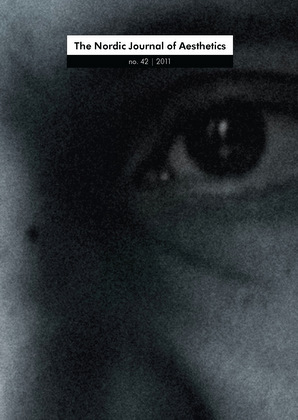Receiving Newman. Formalism, Minimalism, and their Philosophical Preconditions
DOI:
https://doi.org/10.7146/nja.v23i42.5875Keywords:
Barnett Newman, formalism, minimalism, phenomenology, ordinary language philosophyAbstract
Despite the divide between American formalism and theoreticians of minimalism, Barnett Newman’s art received great acclaim from both schools of thought. Attempting to unearth the philosophical preconditions of this strange constellation, this article argues that the closeness between minimalism and formalism is due to their mutual reliance upon phenomenology and ordinary language philosophy. However, their proximity also conveys their distance, since they imply different interpretations and applications of the philosophical schools in question. Such theoretical differences shed light on Newman’s paintings: both minimalism and formalism are right in their accounts – yet not exclusively so. What arguably makes up the distinctive fascination of Newman’s paintings is their incessant oscillation between empty physicality and powerful meaning.
Published
How to Cite
Issue
Section
License
Authors who publish with this journal agree to the following terms:
- Authors retain copyright and grant the journal right of first publication with the work simultaneously licensed under a Creative Commons Attribution License that allows others to share the work with an acknowledgement of the work's authorship and initial publication in this journal.
- Authors are able to enter into separate, additional contractual arrangements for the non-exclusive distribution of the journal's published version of the work (e.g., post it to an institutional repository or publish it in a book), with an acknowledgement of its initial publication in this journal.
- Authors are permitted and encouraged to post their work online (e.g., in institutional repositories or on their website) prior to and during the submission process, as it can lead to productive exchanges, as well as earlier and greater citation of published work (See The Effect of Open Access).




